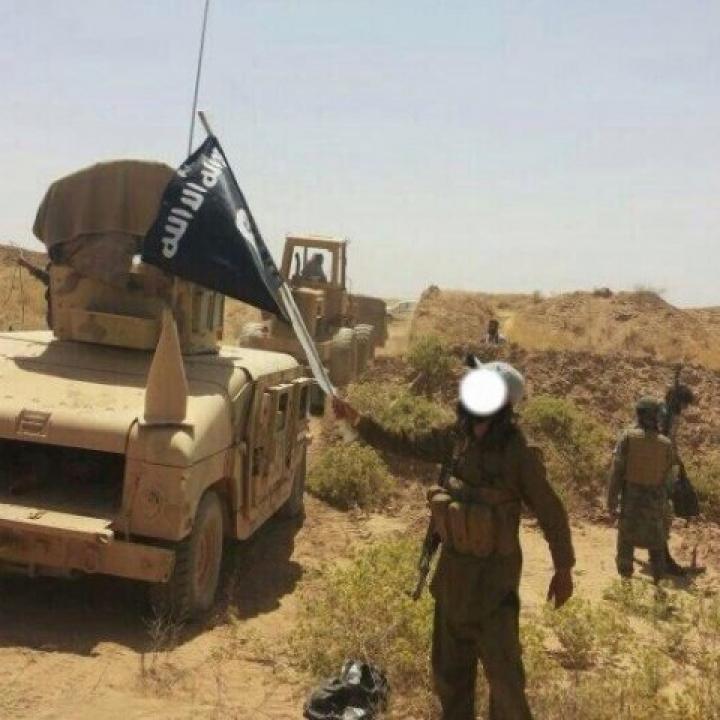
- Policy Analysis
- Articles & Op-Eds
The War on ISIS: Why Put Mosul before Hawija?

Last March, Special Presidential Envoy for the Global Coalition to Counter ISIL Brett McGurk announced the launch of a complex operation to liberate Mosul. This announcement, and the United States' subsequent efforts, have suggested that the United States is undoubtedly one of the countries most dedicated to building a successful democracy in Iraq, even given the changes, decisions, and blunders in post-2003 Iraq. Now, the United States is going to great lengths to prevent countries in the Middle East from drifting into further security, political, and economic failures.
ISIS’s expansion remains one of the largest threats to Iraqi provinces. Across the country, there are calls for unification of efforts against this imminent threat, whose cruelty has reached the Saladin, Diyala, and Nineveh provinces, as well as other regions west and south of Kirkuk. Kirkuk could have fallen in the hands of ISIS militias as well were it not for the vigilance of its citizens, who welcomed the fleeing families that consisted of 650,000 refugees, and for Kirkuk’s Peshmerga forces that exhibited heroic resistance under air cover from the international coalition forces. None of this would have been possible without the tremendous efforts of Kirkuk’s governor, Najmaddin Kareem, who monitored neighboring countries’ situations, enjoyed the tremendous support of his local constituents, and prevented infighting among Kirkuk residents. With these wise measures, Kirkuk became a successful example of resistance and cohesion. The revolt of its citizens when ISIS advanced to the city outskirts and the heroic resistance of the Peshmerga, who countered ISIS fire with their bare chests, is enough to recognize the strength and magnificence of this cohesion.
While Kirkuk symbolizes successful resistance, other regions in the north of Iraq are still in ISIS’s grip. After almost two years, Hawija and its 500,000 majority Arab Sunnis still suffer from ISIS’s occupation. Numerous requests have been made to the governor of Kirkuk to deploy volunteers from Hawija who fled to the Hamrin Mountains to organize and liberate their province. However, the current environment is not receptive to these calls, since the international coalition and the Iraqi government’s plan has remained focused on liberating Anbar, Mosul, and Fallujah. Meanwhile, those planning the fight against ISIS appear to have decided to leave Hawija under ISIS siege for the time being, a reality which has come as a shock to many Sunni Arabs. Around 17,000 families have already fled Hawija to Kirkuk, and many have been forced to leave family members living under ISIS control. ISIS has also targeted Hawija’s infrastructure, gas and oil plants, and power facilities.
What international groups must understand is that Hawija now represents the head of the ISIS snake that is extending into Iraqi territory both geographically and symbolically. The strategic nature of Hawija may make it the second most important city to ISIS after Raqqa. Though a small city, it links together a network of over three hundreds towns and serves as a gathering point for foreign militants, former officers, and young recruits. Now, Hawija has become a control and command center for terrorist operations. From there, attacks are conducted against the Peshmerga in al-Kuwair and Makhmour to the east, as well as against the Kirkuk fronts jointly controlled by the Peshermga, the Turkmen Mobilization forces, and the federal forces in Hamrin to the south. Additionally, it provides an ongoing back-up to other fronts near Samarra and Fallujah. These factors should make Hawija’s liberation a higher priority than that of Mosul.
U.S. decision-makers must be aware that their policies affect the lives of many civilians, and innocent civilians will pay the price for any military blunder in the international community’s strategy. Therefore, it is necessary to unite efforts to liberate Hawija, protect Kirkuk, and ensure that its successful experiment in coexistence continues. Kirkuk, and the liberation of Hawija, would send to the international community a clear message of the solidarity between Peshmerga forces, the police, the army, the tribes, the Kurds, the Turkmen, the Arabs, and the Christians against ISIS. Cohesion and unity is the strongest response to the strongholds of extremist takfiri thought, which–regardless of the name that it goes by–has taken root and developed in southern and western Kirkuk since 2003. For all the above reasons, liberating Hawija is more important than advancing toward Mosul. Indeed, its liberation would be a flash of light in the current dark tunnel in which Iraq and the Middle East are currently trapped.
Marwan Ibrahim al-Ani is a writer and freelance journalist who specializes in interfaith dialogue, ethnic components, and confronting ISIS. He has worked for a number of international press agencies.
Fikra Forum


